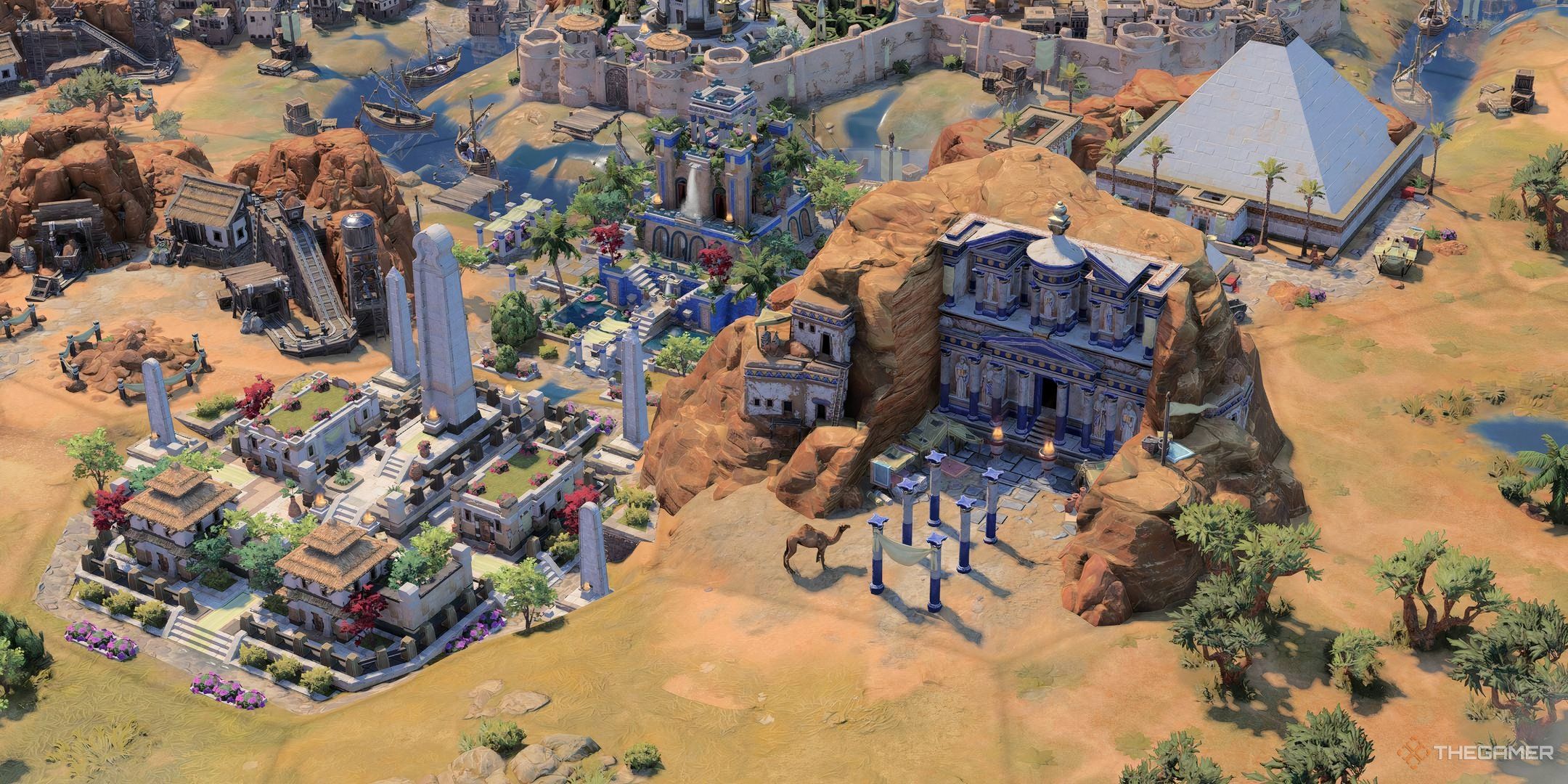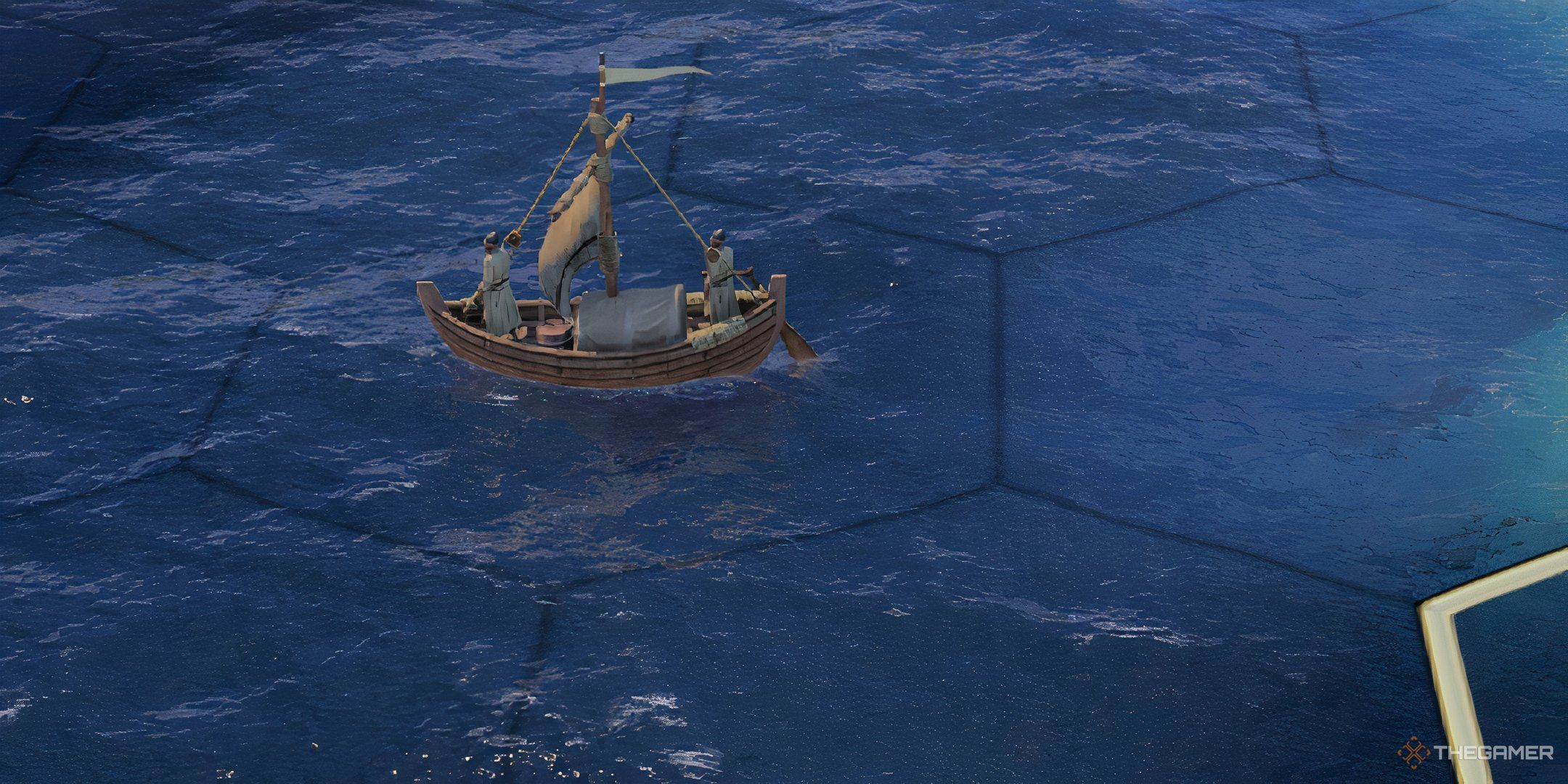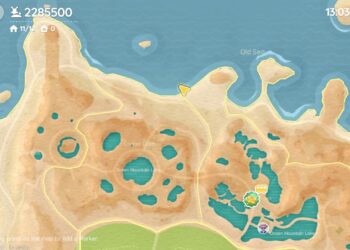Select Language:
For many players, there’s nothing quite as rewarding in Civilization than dominating rivals with your own might. You can undermine their economy, outpace them with technology, or out-culture them. But nothing beats a solid military victory.
If you’re new to Civilization 7, we have some strategies to help you achieve this. From your empire’s foundation to your ultimate show of strength, here are tips to satisfy your conquest ambitions. With the right information, you’ll make it tough for any opponent to stop your progress.
Prepare for the Attack
Unlike other victory types, Domination victories in Civilization 7 don’t mandate reaching the endgame. In fact, you could potentially achieve this without ever entering the Modern Age. If you time your aggressive strategies correctly, you can start making significant gains as early as the Antiquity Age.
To do this effectively, you need to finish the Antiquity Military Legacy Path, which involves accumulating 12 settlement points. You earn one point for each new settlement and two points for each settlement you conquer.
The takeaway is clear: conquest is the best approach. Additionally, keep this in perspective: the more damage you inflict on your neighboring civilizations during Antiquity, the less you’ll need to do during the Exploration Age.
To simplify your task later on, aim for more than just those 12 points. Strive to earn even more. Build your military from the very beginning while still developing your cities. Construct things like monuments, altars, and libraries; don’t let your progress lag too far behind, or you’ll find it more challenging later on.
As of now, since Civilization 7 supports map sizes only up to “Standard”, you should be able to locate other civilizations on your continent fairly quickly. Speed this up by collecting the Memento that enhances your scout’s visibility.
Eliminate Almost Everyone
It may seem like a good idea to go to war with everyone once you have a couple of Army Commanders along with some siege, infantry, ranged, and cavalry units. However, a more strategic approach is advisable.
Foster good relationships with one neighbor, especially one that’s farther away, making them harder to reach. Try to form an alliance with them while challenging all others around you.
This ally will be obligated to fight alongside you once you go to war against your enemies (or they against you!). This strategy offers two key benefits:
- If your ally is strong, they’ll attack your opponents, making it easier for you to capture cities.
- If your ally is weaker, they’re likely to become a target, drawing your enemies’ attention away from you.
In either case, your conquest will go more smoothly. If your ally happens to falter, they may weaken themselves significantly by the time you’re ready to eliminate them after taking out your other foes.
Even if you don’t eliminate all your enemies by the end of the Antiquity Age, you’ll have made substantial progress.
Set Sail
With the arrival of the Exploration Age, you should research Cartography and Astronomy. Our goal now is to develop a powerful navy.
Interestingly, you’ll need to do this for the Economic Legacy Path as well. Fortunately, our objectives align closely with the Cultural Legacy Path of the Exploration Age, making this a streamlined process.
While preparing to send your fleet to distant lands, go ahead and study Piety, and build Temples across your empire. These temples are essential to enhance the Military Legacy Path by converting settlements in these distant lands to your religion.
Feel free to “pond-jump” by advancing your navy one ocean tile at a time, even if it incurs some damage while searching for those distant lands. You won’t have to operate this way forever, but it’s vital to identify distant rivals before they find you.
Once everything is prepared, focus on acquiring Shipbuilding technology and any upgrades for your military units, and set sail. We can’t effectively transport our armies for significant action until we acquire the necessary technology, but we can still start attacking enemies with naval strikes.
If you happen upon any distant civilizations that are at war with one of their neighbors, take advantage of that. Declare war on one of these weakened civilizations.
Impose Your Faith
Attacking coastal cities with your naval power (make sure to include at least one Fleet Commander) will create a substantial advantage while you work on bringing Army Commanders and land units into the fight. Don’t forget to train Missionaries in Temples as well.
When selecting your religion, prioritize militaristic beliefs, such as the one that allows your Missionaries to heal your units.
From this point onward, the strategy is fairly straightforward, though it will take time. Deploy your armies to the interior of distant civilizations, bringing Missionaries along. Aim to exceed the required 12 total points in the Legacy Path as much as possible to ease future gameplay.
While conquering every distant civilization during the Exploration Age may be ambitious, particularly at higher difficulty levels, aim for settlement conversions to earn points, while converting conquered territories for double points. In any case, making an effort to eliminate those civilizations is ideal.
Eliminate What Remains of the World
In the Modern Age, it’s time to clean house. Quickly research technologies to enhance your military strength and train more military units at your distant settlements. As for your civic, follow the path that leads to the Modern Domination Victory objectives by studying Ideology and picking one that fits your style, likely Fascism.
You can pursue two routes for victory: either complete the objectives by researching the Manhattan Project and Operation Ivy or, preferably, eliminate any remaining enemies. If you’ve already diminished their capacities, they will still resent you but will be considerably weakened as you enter the final phase.
That’s basically the plan. The Modern Age will either unfold quickly or require a bit of time, depending on your approach and how swiftly you can finish off your adversaries.











